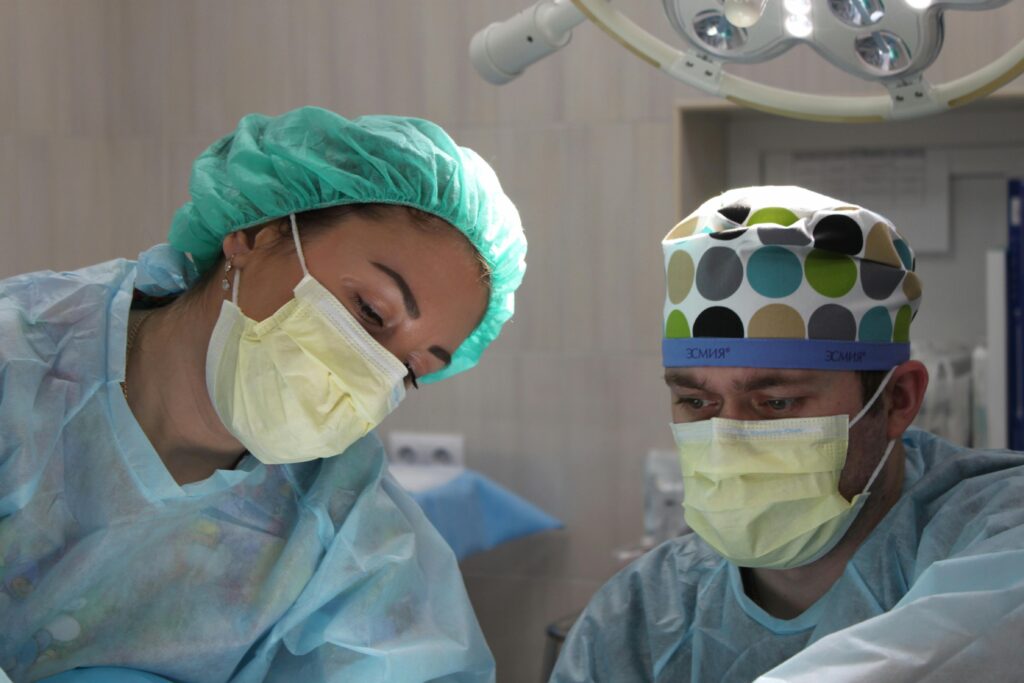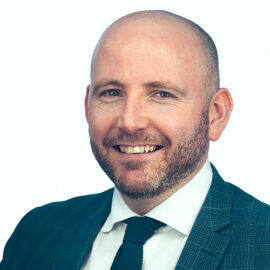- Personal Injury Claims
- Accidents
- Road Traffic Accident Claims
- Accidents At Work Claims
- Holiday Accidents and Illnesses Abroad Claims
- Fatal Accident Claims
- Accidents Public Place Claims
- Injuries
- Tinnitus Claims
- Eye Injury Compensation Claims
- Poisoning Claims
- Severe Injury Claims
- Sports Injury Claims
- Upper Body Injuries Claims
- Arm and Elbow Injury Compensation Claims
- Hand Injury Claims
- Chest Injury Compensation Claims
- Neck Injury Compensation Claims
- Collarbone Injury Compensation Claims
- Cheekbone Injury Compensation Claims
- Eye Injury Claims
- Shoulder Injury Claims
- Fractured Sternum Compensation Claims
- Spinal Injuries Claims
- Brain Injury Compensation Solicitors
- Compensation for Scarring Claims
- Dislocated Injury Compensation
- Amputation Claims
- Dental Claims
- Horse Riding Accident Compensation
- Personal Injury Lower Body Injuries
- Asbestos Lawyers
- Abuse Lawyers
- Other Injury Claims
- Disputes
- Alternative Dispute Resolution
- General Disputes
- Litigation
- Defamation
- Litigation Funding
- Other Dispute Resolution Services
- Court Actions
- Professional Negligence
- Professional Negligence Claims Against Surveyors
- Professional Negligence Claims Against Architects
- Professional Negligence Claims Against Accountants
- Professional Negligence Claims Against Solicitors
- Professional Negligence Claims Against Financial Advisers IFAS
- Professional Negligence Claims Against Banks
- Clinical Negligence Claims, Glasgow
- Group Actions
- Property & Conveyancing
- Conveyancing Services – Scotland
- Commercial Property Services – Scotland
- Other Property Services Scotland
-
- Family Law
- Immigration Services
- Visas
- Adult Naturalisation Application
- Child Registration Application
- Private Life Application for Adults
- Private Life Application for Children
- Long Residence Application
- Surinder Singh
- Administrative Review
- Fresh Claims for Asylum
- Naturalisation Application
- Stateless Persons
- Travel Documents
- Pre Action Protocol Letter
- Judicial Review
- Immigration Application Review
- Brexit Immigration Advice
- Business Immigration
-
- Wills,Trusts & Estates
- Probate & Executry Services
- Business Services
- Careers

Clinical Negligence Claims, Glasgow, Scotland
Get in touchWhat is Clinical Negligence?
When you or a loved one suffer from ill health and require assistance from a medical professional, it can be a very stressful and worrying time.
We trust that the medical and health professionals looking after us will provide us with the best care possible.
Sadly this is not always the case and mistakes can happen, this can involve errors in treatment provided, surgical errors, missed or delayed diagnosis, and failure to obtain informed consent.
Making Clinical Negligence Claims with Jones Whyte
At Jones Whyte, we acknowledge and appreciate the hard work and commitment of the majority of medical professionals who strive to keep us healthy.
However, when medical negligence occurs, often involving cases of medical misdiagnosis, negligent care, doctor negligence, medical malpractice, or maternity negligence, it can be an emotionally and physically distressing experience and it’s only fair to seek legal advice and claim the compensation you deserve.
Contact Us
Contact us for a confidential discussion about your case.


Medical Negligence Compensation
Not only can it provide access to necessary medical care, but by securing financial compensation, it can also address any financial losses and bring about positive change within the medical industry. This is where our legal team of specialist medical negligence solicitors can step in to assist you.
No one deserves to leave a medical facility in a worse condition than they were when they entered. If you’ve undergone medical procedures, big or small, and find yourself in such a situation, it could be a result of medical negligence and negligent treatment.
This is where our team of specialist medical claim lawyers can help prove medical negligence and help secure financial compensation.
We provide you with expert medical negligence advice, advocating for your rights and fighting for the medical negligence compensation you deserve. Let us help you navigate the complex world of medical claims and secure a brighter future.
Working with our Clinical Negligence Solicitors
Our team of experienced medical negligence solicitors are dedicated to helping patients who have been wronged by medical staff and professionals.
We are here to guide you through the claims process with empathy and understanding. Our expert medical negligence lawyers understand that making a medical negligence claim against a professional can often feel like a daunting prospect and are here to guide you every step of the way.
We recognise the life-changing impact that medical negligence can have on the individual and their family.
Get in contact with our experienced medical negligence lawyers today for support with your case.
Contact Us
Get in contact with our experienced clinical negligence professionals today for support with your case.
We ensure that you are heard from the initial consultation, right through until the conclusion of your case.
We recognise that one of the most important aspects when pursuing a medical negligence claim is obtaining answers as to why the negligence occurred in the first instance and ensuring that those involved learn from their errors, to prevent similar failings from occurring in the future.
We provide access to the top medical experts available in the UK to obtain these answers and ensure that you are compensated fully.
By delivering this dedicated support and advocating for your rights, we empower you to secure not only the misdiagnosis compensation, medical misdiagnosis claim, and surgical negligence claims you deserve, but also the peace of mind that your experience contributes to preventing instances for medical negligence.
How To Make A Medical Clinical Claim
We understand that the thought of taking legal action can be overwhelming, especially if you are still grappling with unresolved health issues due to medical negligence.
That’s why our medical lawyers make it their mission to simplify the process and ensure a smooth and seamless experience for our clients.
Our team is highly skilled in both mediation and negotiation, and we have a proven track record in successfully navigating court proceedings at all levels.
Our proficiency extends to collaborating with medical claim specialists and hospital negligence solicitors, ensuring that you receive comprehensive guidance.
With Jones Whyte by your side, you can trust that you will receive the best possible outcome.
Contact Our Clinical Negligence Team
Get in contact with our experienced medical negligence professionals today for support with your case.
Contact Us
Get in contact with our experienced medical negligence professionals today for support with your case.
Why Choose Jones Whyte To Represent Your Medical Negligence Claim?
We pride ourselves on offering a genuine no win no fee medical negligence claim service. Unlike other law firms, we cover the cost of medical expert reports required for every case.
This ensures there are no hidden or upfront costs for our clients, providing a truly hassle-free and risk-free experience.
We go above and beyond to support our clients throughout medical negligence cases. Not only do we seek compensation for pain and suffering, but we also thoroughly investigate and include all aspects of your claim, such as lost earnings, future loss of earnings, corrective treatment costs, and care costs.
Additionally, we understand the importance of rehabilitation in your recovery journey. That’s why we cover the costs of essential treatments like counselling and physiotherapy, ensuring you receive the care you need to regain your health and well-being.
Meet The Experts
Our highly experienced specialist medical negligence lawyers at Jones Whyte are ready to assist you with your medical negligence claim.
Meet the experts
The highly experienced medical negligence lawyers at Jones Whyte are ready to assist you with your claim.
Meet the whole teamContact Us
Get in contact with our experienced medical negligence professionals today for support with your case.
Do I Have A Medical Negligence Claim?
You generally have three years to make a medical negligence claim. This can either run from the date the treatment took place or the date you became aware the treatment was negligent.
It makes sense to engage a medical negligence lawyer and begin your claim as soon as possible. This will help ensure the claim is resolved quickly, and allow you to access further medical treatment if needed.

Types of Medical Negligence
- Surgical Negligence: This refers to the failure of a medical professional to uphold the duty of care during a surgical procedure, resulting in harm or injury to the patient.
- Delay in Diagnosis: This occurs when a healthcare provider fails to promptly diagnose or adequately treat a patient’s medical condition, leading to harm or injury.
- Misdiagnosis: This can happen if a healthcare professional fails to recognise the condition that the patient is suffering from. This often leads to a delay in the patient receiving treatment, which can contribute to the worsening of their condition.
- GP Negligence: GP negligence occurs when a GP makes an error which has negative consequences for their patient. These claims often include a failure to act upon symptoms that the patient is presenting with, such as delaying in referring them to secondary care for a scan or further investigations.
- Pregnancy and Birth Injuries: This is when harm is caused to mother or baby during or after pregnancy. It can also include claims for wrongful birth, such as where sterilisation fails. These claims can sometimes have lifelong consequences for the individual.
- Dental Negligence: These claims can be pursued against your Dentist for poorly performed surgical treatment, a delay in diagnosing and treating conditions such as gum disease or for failure to refer to other specialists.
- Cosmetic Surgery: With cosmetic procedures becoming increasingly popular, there is a rise in the number of medical negligence claims being pursued for poor cosmetic treatment. These procedures can occur to both men and women and often include fillers being injected wrongly, cosmetic surgery such as breast augmentations going wrong and poor after care.
- Prescription and Medical Errors: These errors can be caused by all medical professionals such as GP’s or Pharmacists. The patient is often either given the wrong medication or the wrong dosage of their intended medication.
What Damages Can I Claim?
As well as any pain and suffering endured as a result of the negligence, below is an example of some other heads of damages that we can seek to recover on your behalf.
- Loss of earnings, including past and future loss of earnings
- Loss of employment
- Pension loss
- Care and assistance
- Gratuitous care from family or friends
- Aids and equipment
- Adapted accommodations
- Corrective treatment
- Physical and psychological rehabilitation
Making a Successful Medical or Dental Negligence Claim
At Jones Whyte Solicitors, we understand the intricacies of medical and dental negligence claims. To successfully pursue such a claim, it is crucial to establish that the standard of care provided was subpar and below the standards set by professionals in the same field. This is achieved through obtaining expert opinions from medical or dental professionals.
Additionally, it is imperative to demonstrate the causal relationship between the substandard treatment and any negative outcomes suffered. This can be a complex process, but our team is equipped to handle the challenges through the procurement of expert reports. Trust us to navigate this complicated terrain, ensuring that your medical negligence claims are approached with the utmost proficiency with expertise and efficiency.
Our medical claim lawyers have dealt with many different types of claims. Please find out more about our dental negligence compensation services today.
Pursuing A Medical Negligence Claim When The Individual Has Passed Away
In cases in which an individual experienced medical negligence whilst they were alive but are no longer here to pursue a claim, the Executor of their estate can do this on their behalf for the pain and suffering caused to the individual, before their death.
In Scotland, close relatives (spouse, parents, children, grandchildren, grandparents, and siblings including step-relatives) of an individual who has died as a result of negligence can pursue a claim for loss of society under s4(3) of the Damages (Scotland) Act 2011.
In order to process a loss of society claim, we must be able to prove that the care provided to the deceased patient caused or contributed to their death. The deceased’s relatives are each compensated for the loss of their relationship, support and guidance of that family member in their life.
In certain circumstances, in which negligence occurred during the individual’s lifetime but they are no longer here to pursue the claim, the Executor can also pursue the claim on behalf of the estate, even if the negligence did not directly result in death. For example, where a delay in diagnosis of incurable cancer occurs, which shortens the individual’s life and which can affect their overall quality of life but does not directly result in death, an Executor can pursue a claim for medical negligence on behalf of the deceased’s estate.
Medical Negligence Claim Time Limits
To pursue a claim for medical negligence in Scotland, Court proceedings must be raised and served on the negligent organisation or individual professional, three years from the date in which you could reasonably be expected to have become aware of the negligence.
For negligence pertaining to children, the time limit in which to raise the claim in Court is three years from the date of their 16th birthday.
Contact Us
Get in touch with our experienced medical negligence professionals today for support with your case.


















